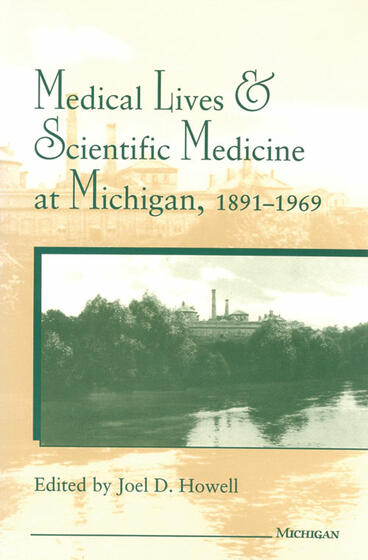Medical Lives and Scientific Medicine at Michigan, 1891-1969
Portrays the development of modern medicine through the lives and work of six pioneers
Description
U.S. health care has changed dramatically during the past century. A new breed of physicians use new machines, vaccines, and ideas in ways that have touched the lives of virtually everyone. How and why did these changes occur?
The biographical essays comprising this volume address this question through the stories of six scientific innovators at the University of Michigan Medical School. Michigan was the first major U.S. medical school to admit women, to run its own university hospital, and, by the turn of the century, was recognized as one of the finest medical schools in the country. The people whose stories unfold here played a central part in defining the place of medical science at the University of Michigan and in the larger world of U.S. health care.
Introductory sections are followed by biographical profiles of George Dock, Thomas Francis, Albion Hewlett, Louise Newburgh, Cyrus Strurgis, and Frank Wilson. Drawing on extensive archival research, the authors provide a richly textured portrait of academic medical life and reveal how the internal content of science and medicine interacted with the social context of each subject's life. Also explored is the relationship between the environment (the hospital, the university, and the city) and the search for knowledge.
These narratives expand our perspective on twentieth-century medical history by presenting these individuals' experiences as extended biopsies of the period and place, focal points illuminating the personal nature of medicine and locating the discipline within a social and institutional setting.
Joel D. Howell is Associate Professor, Department of Internal Medicine, Department of History, and Department of Health Services Management and Policy, University of Michigan.
Joel D. Howell is Associate Professor, Department of Internal Medicine, Department of History, and Department of Health Services Management and Policy, University of Michigan.

